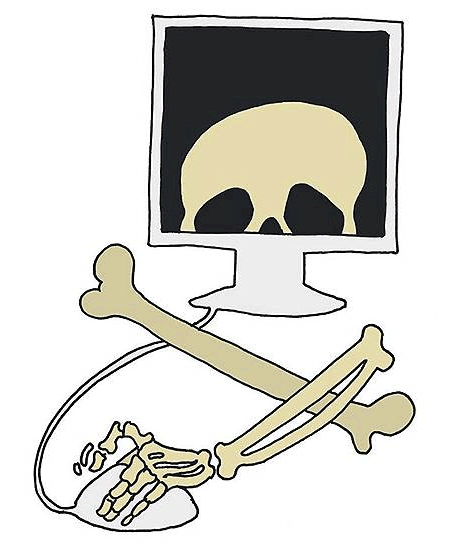The number of pirate sites in Russia has increased dramatically
 By the end of 2018, the number of pirated sites in Russia increased by 43%, according to WebKontrol statistics . It scans the Internet in search of unlicensed content on the order of copyright holders, interrupts live broadcasts and collects information from sidah and peers in BitTorrent. Such a sharp increase in piracy was unexpected, because last year the number of pirated sites fell by 10%.
By the end of 2018, the number of pirated sites in Russia increased by 43%, according to WebKontrol statistics . It scans the Internet in search of unlicensed content on the order of copyright holders, interrupts live broadcasts and collects information from sidah and peers in BitTorrent. Such a sharp increase in piracy was unexpected, because last year the number of pirated sites fell by 10%. The lion's share of pirated resources are streaming sites. WebKontrol counted about 6,500 such sites in 2018, whereas a year earlier only 4,500 were found. The share of streaming in the total number of pirated sites was 71%. Experts noted that the figure has increased dramatically due to the holding of the World Cup and the advent of thousands of pirated broadcasts of matches.
In the growth rate lead torrents. The number of sites with torrents increased from 1300 in 2017 to 2000 in 2018. Their share among all pirated sites increased from 17% to 22%, and by the number of posted links to unlicensed content, the share reaches 40%. WebKontrol explained that there can be 15–20 different links to the same movie on a torrent site, whereas on streaming sites there are usually no more than five, Kommersant writes .
According to fighters from counterfeiters, Russians choose sites with torrents not for downloading movies, but for other content: computer games and software, while movies prefer to watch online. However, streaming platforms often operate on the basis of torrents and use their services. In 87% of cases, copies of films appear first on torrents. On average, 2000–8000 illegal links to every major premiere appear on the Internet.
Another interesting trend is the emergence of a large number of pirate sites that are disguised as legal. There is even paid content. For example, the pirate resource Ororo.tv allegedly teaches English, and Soap4.me sells a subscription with unlimited access to the series.
But the copyright holders do not panic. The general director of the Internet Video Association, Aleksey Birdin, is confident that despite the growing number of pirated sites, their total audience does not increase. Just after blocking “Rutreker”, his audience “sprawled out” over smaller resources. This is beneficial for WebKontrol: the company makes money by searching for unlicensed copies, and therefore reports an increase in the number of sites, although the main role in distributing pirated content belongs to all known major resources.
